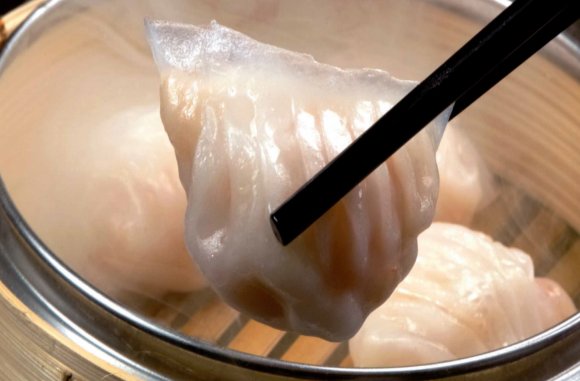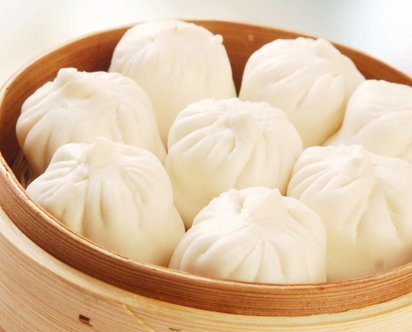相傳東漢末年,張機在長沙為官時,常為百姓除疾醫病,他在長沙告老還鄉後,走到家鄉白河岸邊,見百姓捱饑受寒,耳朵凍爛,在冬天,他叫弟子在南陽東關的一塊空地上搭起醫棚派藥,用羊肉、驅寒草藥煮熬成「祛寒嬌耳湯」,加入用饀皮包成耳朵狀的「嬌耳」,據說吃後身體會發熱,兩耳變暖。張機派藥持續到年三十。年初一時,人們開始仿嬌耳樣子做過年的食物,並在初一早上吃,稱之為「餃耳」、「餃子」。
Jiaozi (simplified Chinese: 饺子; traditional Chinese: 餃子; pinyin: Jiǎozi; Japanese: 餃子(gyōza); Vietnamese: bánh chẻo; Nepalese: म:म: or ममचा) or pot sticker is a Chinese dumpling commonly eaten in Nepal, Japan, Eastern and Western Asia.
Jiaozi typically consists of a ground meat and/or vegetable filling wrapped into a thinly rolled piece of dough, which is then sealed by pressing the edges together or by crimping. Jiaozi should not be confused with wonton; jiaozi has a thicker skin and a relatively flatter, more oblate, double-saucer like shape (similar in shape to ravioli), and is usually eaten with a soy-vinegar dipping sauce (and/or hot chili sauce); while wontons have thinner skin, have square skins, and are usually served in broth. The dough for the jiaozi and wonton wrapper also consist of different ingredients.
包子baozi
一般是用面粉混和水後发酵過的麵團內加餡蒸製而成,款式非常多。常用餡为各種肉類或各類蔬菜、芝麻、豆沙等等。現今出名的天津狗不理包子、廣東叉燒包、上海小籠饅頭。
現在江南地區,仍然將包子和饅頭統稱為饅頭,而將以肉為餡的包子稱為「肉饅頭」。
A baozi or simply known as bao, bau, humbow, nunu, bausak, pow or pau is a type of steamed, filled bun or bread-like (i.e. made with yeast) item in various Chinese cuisines, as there is much variation as to the fillings and the preparations. In its bun-like aspect it is very similar to the traditional Chinese mantou. It can be filled with meat and/or vegetarian fillings.
Two types are found in most parts of China and Indonesia: Dabao (“big bun”), measuring about 10 cm across, served individually, and usually purchased for take-away. The other type, xiaobao (“small bun”), measure approximately 5 cm wide, and are most commonly eaten in restaurants, but may also be purchased for take-away. Each order consists of a steamer containing about 10 pieces. A small ceramic dish is provided for vinegar or soy sauce, both of which are available in bottles at the table, along with chili paste and garlic paste.



